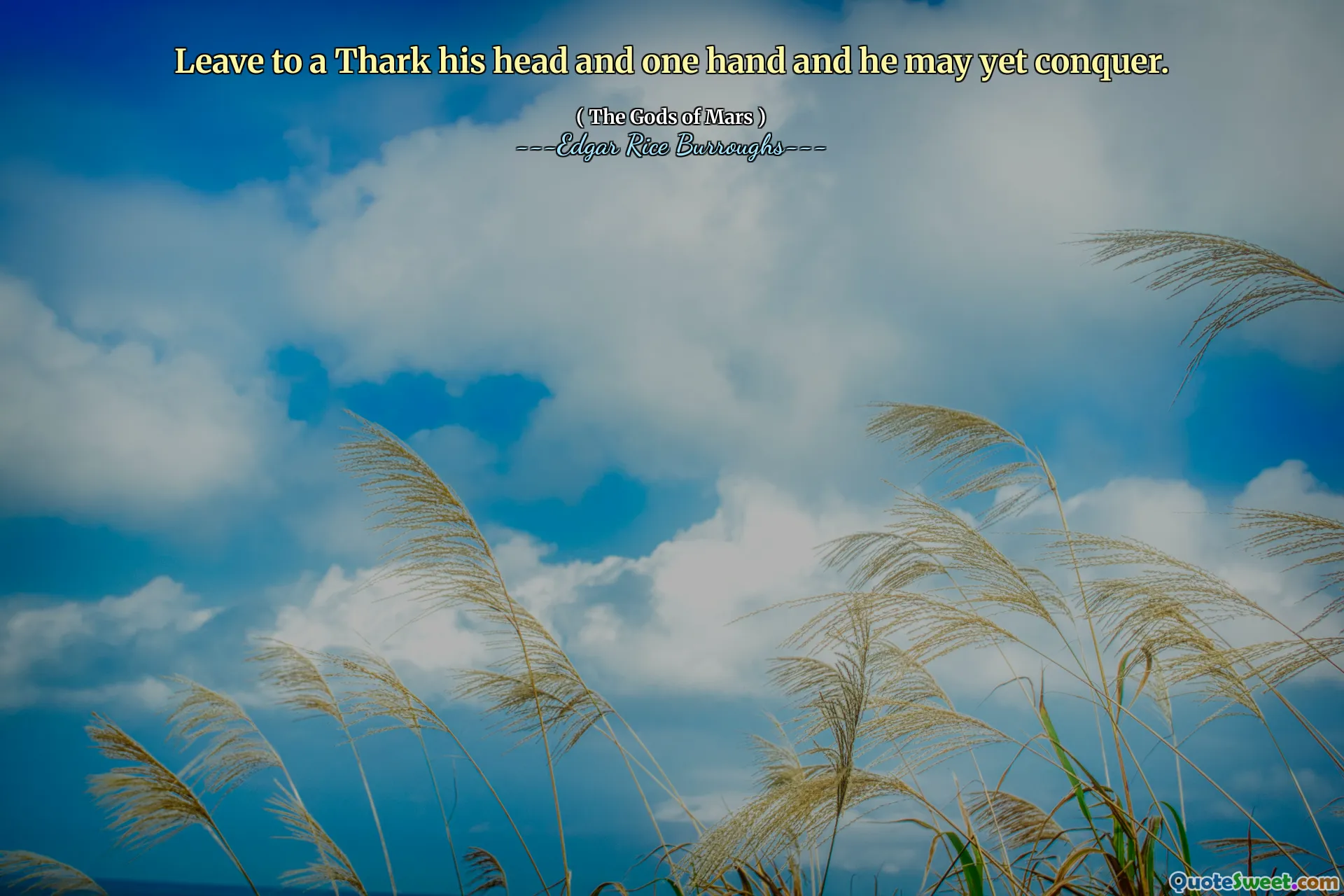
Leave to a Thark his head and one hand and he may yet conquer.
This quote, originating from Edgar Rice Burroughs' 'The Gods of Mars,' encapsulates a fierce resilience and an indomitable spirit. The Thark, a fierce warrior species in the Martian setting, is portrayed here as capable of overcoming tremendous adversity, even when deprived of his full strength or assets. The phrase suggests that true courage and tenacity lie not solely in physical victory, but in the will to continue fighting despite suffering losses. It brings to mind the universal truth that setbacks and sacrifices do not necessarily spell defeat; rather, they can be the very test of resolve that distinguishes the truly resolute from the merely fortunate.
In a broader sense, this line evokes a powerful message about perseverance and the unyielding human (or even broader) spirit. It reminds us that core qualities such as determination, strategic thinking, and grit can enable an individual or group to still achieve greatness or victory, even when handicapped or diminished. This perspective is particularly relevant in moments of hardship, where the temptation is to retreat or concede. Instead, the quote advocates for resilience—the idea that as long as some part of one's capacity remains intact, there is still hope for triumph.
Symbolically, it also emphasizes the importance of adaptability—adapting to loss and damage without surrendering to despair. The image of a warrior who can still conquer after losing his head or hand magnifies the notion that victory is often a matter of mental strength, formidable willpower, and strategic resolve. Overall, this quote inspires to look beyond surface-level setbacks and recognize the power of perseverance inherent in the human condition, making it a compelling call to resilience and hope even under dire circumstances.






